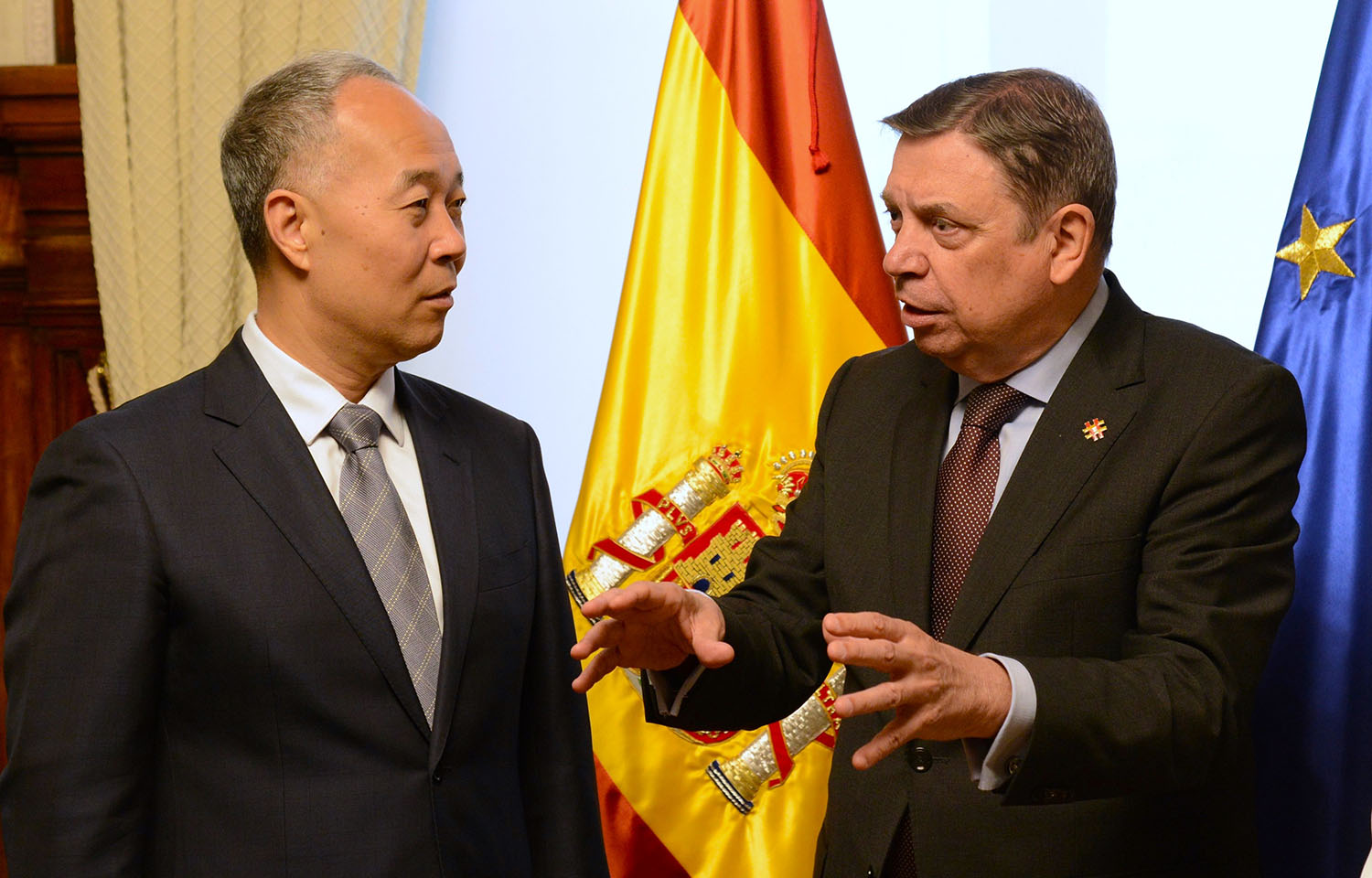Spain Agriculture and Fisheries Minister Luis Planas said he wants to increase exports of Spanish foods, including seafood, to China.
Planas said during a visit to the SIAL B2B food and beverage expo in Shanghai on 23 May he is pushing for an update to Chinese import protocols to allow more Spanish food into China in the hope of cutting Spain’s trade deficit.
In Beijing, Planas met with China Customs Head Yu Jianhua and China Agriculture Vice Minister Ma Youxiang, who is in charge of national fisheries regulation and policy. Planas said in a statement he requested Yu and Ma to allow for more Spanish wild-caught seafood products, some aquaculture products, and fishmeal for animal feed to enter China.
Planas said there have been “good technical relations” between Spain and China. Recently, China has signed protocols to improve processes to facilitate imports of Spanish olive paste, pet food, fodder oats, almond, and persimmon.
In 2023, Spain increased its food exports to China by 19.4 percent year over year to EUR 1.8 billion (USD 2 million), but there are concerns in the country’s government about the widening overall trade deficit with China at a time of increased tension between key E.U. and Chinese decision-makers over trade.
While China's state-run Kaichuang, one of the country’s largest fishery firms, has invested in the Albo Spanish seafood group, the scale of the Chinese distant-water fleet has worried Spanish fishing firms, which are direct competitors to China in North and West African waters.
Javier Garat, head of the Spanish fisheries industry body Cepesca, warned in May of “dangerous” strategic agreements on fisheries between China and Russia that would bring Chinese vessels closer to the European Union in the Barents Sea. He also warned of “dubious” fishing operations by Chinese fishing vessels in the Southwest Atlantic, where Spanish vessels have also traditionally been active.








